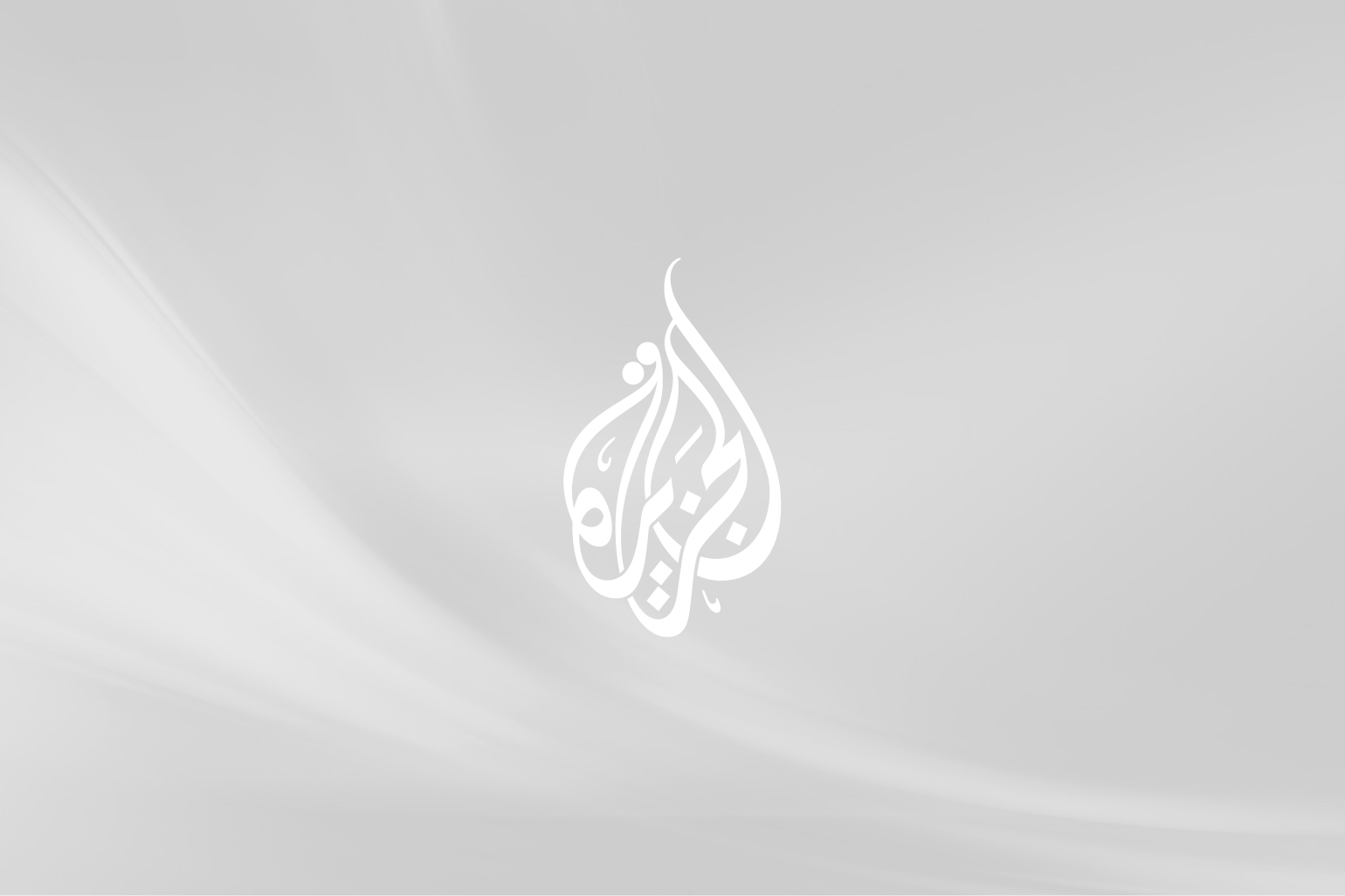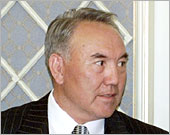Temple fig leaf hides Kazakhstan’s shame
Kazakhstan’s premier has ordered the construction of a huge interfaith temple in the capital but critics say the scheme is a poor mask for continuing repression in the former Soviet republic.

President Nursultan Nazarbaev said the temple, on which construction is expected to begin this week, would afford interreligious concord – “a part of our stability.”
He hopes more than 40 different religions will be represented at the complex in Astana which will be able to house over 3000 worshippers.
Not everyone smiling
But the positive media image of an interfaith temple does not hide the country’s deteriorating human rights record, according to international human rights bodies and political opposition figures in the central Asian republic.
Leading Kazakh opposition figure, Dos Koshim, said the international community should force President Nazarbaev to permit simple democratic rights.
 |
|
President until 2007, only he can |
“Forget the temple! The government is protecting its monopoly on political and economic life by undermining basic freedoms – with silent international approval.”
Government crackdown
After years of political activism that has brought him trouble from the authorities, Koshim insists the government is leading a crackdown on opposition political parties, the media, and certain non-governmental organisations in a drive to limit political competition.
He points out how police have arrested and harassed members and supporters of two of Kazakhstan’s most prominent political parties.
Fourteen opposition party members and supporters now face “invented” civil and criminal charges, usually to prevent them from running for public office.
Most political victims are from the Democratic Choice of Kazakhstan (DVK) and the Republican Peoples Party of Kazakhstan (RNPK).
No political opposition
|
“Kazakhstan is starting to look like another case study in how oil windfalls bolster dictatorships rather than foster democracy” Clayton Ruby, |
The DVK leader, Galymzhan Zhakianov, is serving a seven-year sentence on abuse of office and financial mismanagement charges following a trial that international experts found to be deeply flawed.
The RNPK leader has been living in exile for months.
Opposition activists also face threats of job dismissal in retaliation for their political involvement, police prevent them from organising and attending party gatherings, and sometimes intimidate them with law enforcement and security agents.
The number of political parties in 2003 dropped from 19 to seven.
“The trend is clear – the Kazakh government wants to avoid genuine political competition so that it cannot be held accountable to the public,” said Human Rights Watch spokesman in Toronto, Clayton Ruby.
Corruption
High-ranking government officials have also been implicated in corruption scandals involving oil revenues.
 |
|
Kazakstan received US financial |
Allegations emerged as long ago as 2000 that the Kazakh government secretly held about US $1.4 billion in Swiss bank accounts.
Also, a US federal court has indicted two American businessmen on charges of corruption in their transactions with energy deals.
But journalists who tackle such topics have been victims of attacks and beatings by unknown individuals, according to Ruby.
Libel case
The government also targets oppositon politicians for criminal libel cases.
One of them, Sergei Duvanov, is now serving a three year prison term on charges of statutory rape, following a deeply flawed trial – says Human Rights Watch.
The government is now adopting new measures to control the work of nongovernmental organisations that work on sensitive issues.
It harasses them through intimidating police visits, random investigations by tax police, and observation by security agents.
“Kazakhstan is starting to look like another case study in how oil windfalls bolster dictatorships rather than foster democracy,” Ruby said.
Economy
Kazakhstan has won international praise for achieving rising GDP growth, stabilising its macroeconomic situation and joining the World Trade Organisation, the first country of the former Soviet Union to do so.
But at least 27% of the population still lives below subsistence level, and many social indicators have dropped or remained low.
In the wake of an oil boom, it looks like the benefits are concentrated in the hands of a few who are more than willing to crack down on the rest.